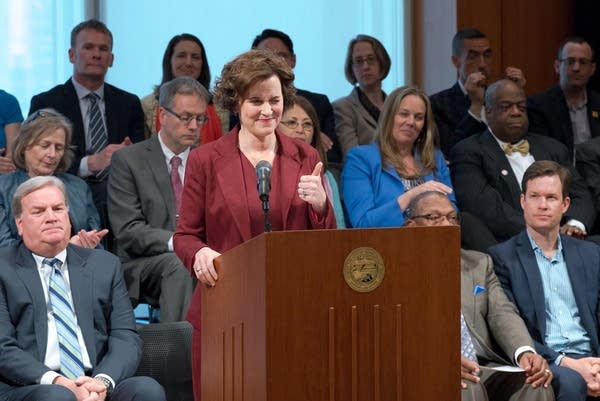Hodges: Help on the way to stem north Minneapolis violence

Minneapolis Mayor Betsy Hodges delivers the 2016 State of the City address in Antonello Hall at MacPhail Center for Music on Tuesday.
Tom Baker for MPR News
Go Deeper.
Create an account or log in to save stories.
Like this?
Thanks for liking this story! We have added it to a list of your favorite stories.


